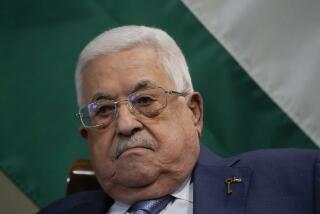Tunisia names new prime minister to form government
Tunisian political leaders tapped a new prime minister Friday, choosing the head of a crucial and controversial ministry to form a new government for the divided North African nation.
Ali Larayedh steps into the role at a tense time for Tunisia. Protests raged this month after the slaying of opposition leader Chokri Belaid, which infuriated secular liberals and stirred up renewed opposition to the government, led by moderate Islamists. Some blamed the government for his killing.
Hoping to quell the unrest, then-Prime Minister Hamadi Jebali proposed that Tunisia create an apolitical government of technocrats, rather than one populated by politicians. The idea that did not fly with his Nahda party, the moderate Islamists who led in elections less than a year and a half ago. The split reflected a schism within the dominant party.
Disappointed by the stalemate, Jebali stepped down this week. To replace him, Nahda chose Larayedh, a former political prisoner who led the Ministry of the Interior after the Tunisian revolution. As minister, he ran the government agency that once had jailed him.
“That’s one of the toughest jobs, to reform the police. It was full of corruption, full of people who used to torture prisoners,” said Radwan Masmoudi, president of the Center for the Study of Islam and Democracy. In his new job, “his biggest challenge will be to unite all Tunisians behind his vision.”
Opposition politicians were unhappy with the choice.
“The decision deepens the crisis because Larayedh headed the ministry responsible for the killing of Belaid and violence that has spread throughout the country,” Zied Lakhdar of the leftist Popular Front told Reuters news agency. The ministry denies such accusations.
Larayedh is far from the most radical possible choice by Nahda, several experts say, but the new prime minister is widely seen as less willing to compromise with the opposition than Jebali was. Duncan Pickard, nonresident fellow at the Rafik Hariri Center for the Middle East, called him “part of the inner circle” and “definitely the Nahda establishment.”
Choosing him “represents no change in direction whatsoever,” said Rob Prince, a lecturer at the Korbel School of International Studies at the University of Denver. “It leaves me uneasy because there was a chance here to reduce the political tensions. ... It seems like the polarization will continue.”
Larayedh pledged Friday to create ”a new government which will be that of all Tunisians,” the Tunisia News Agency reported. He voiced hope that the new Cabinet would satisfy all political groups.
It remains to be seen whether Larayedh can do that. Of the “hard-line” candidates considered by Nahda, “he’s the most centrist among them,” said Marina Ottaway, senior scholar at the Woodrow Wilson International Center for Scholars. Nonetheless, “choosing him is an act of provocation. ... They stuck to their guns.”
Under Larayedh, the Interior Ministry has been accused of being soft on violent, ultraconservative Salafis, failing to halt the torching of Sufi shrines, riots over artwork and other disruptions to Tunisian life by fundamentalists, while aggressively cracking down on protesters. Some Tunisians are skeptical that the ministry just hasn’t been able to track down the religious attackers.
“This is a ministry that, at one point, you would talk to your brother, and they would know exactly what you were saying,” said Bechir Blagui, founder and president of the Free Tunisia pro-democracy group, which has offices in Tunisia and Los Angeles. “So to have 45 mausoleums in Tunisia burned -- it’s very hard to believe that nobody has been caught yet.”
Speaking in Los Angeles, Blagui added that “they are letting these thugs do whatever they want.”
Masmoudi countered that Larayedh had done well as interior minister, successfully seizing weapons and working to find militants who attacked the U.S. Embassy in Tunisia last year. A senior Salafi was arrested in connection with the embassy attack in September.
“He’s a man of principle. I think he has the talent and character” to ease tensions, Masmoudi said in a phone interview from Tunisia. “But I don’t know if the opposition will necessarily respond to his appeal.”
Much will hinge on who Larayedh picks for the Cabinet, Pickard said. As of Friday, he has 15 days to present a new government. Elections are slated to follow in June.
ALSO:
Palestinians protest in support of striking prisoners
Oscar Pistorius is granted bail by South African magistrate
Politics, personalities drive the decision on who will be pope
More to Read
Start your day right
Sign up for Essential California for news, features and recommendations from the L.A. Times and beyond in your inbox six days a week.
You may occasionally receive promotional content from the Los Angeles Times.






